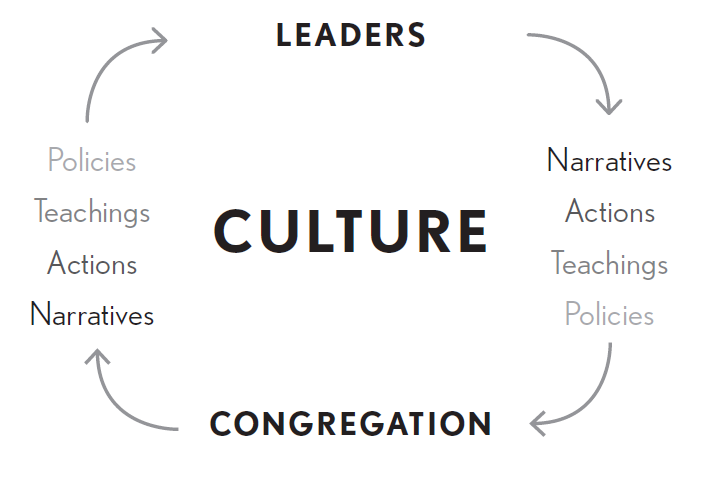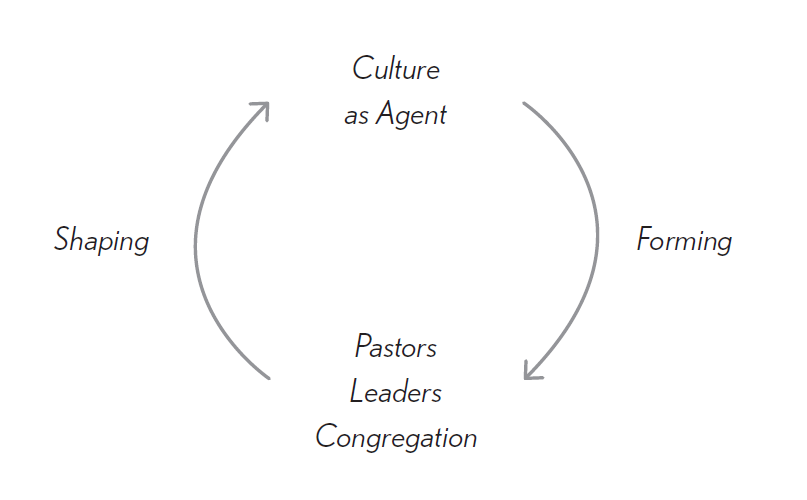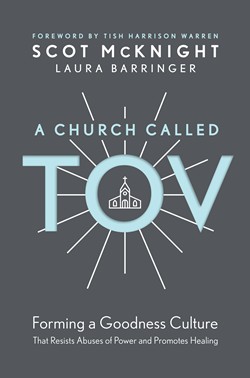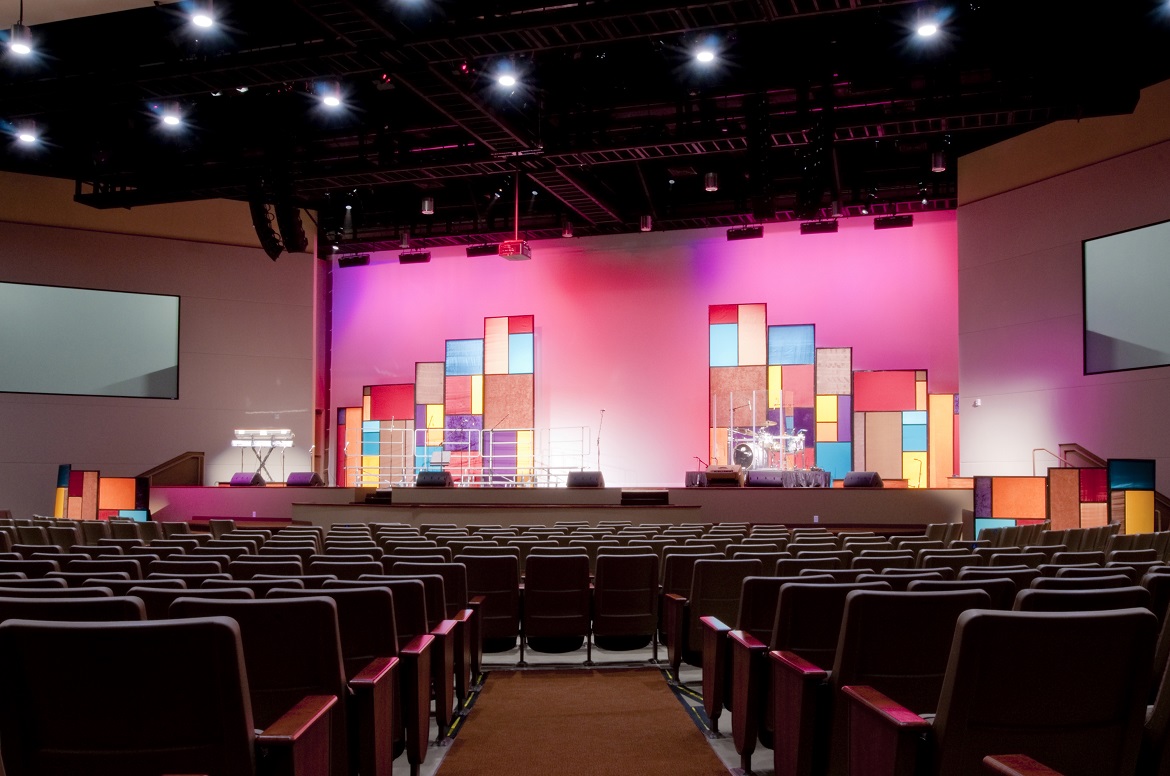Though it is true that leaders lead and thus have a decisive and sometimes overriding voice in the formation of culture, it’s more accurate to say that leaders and congregations form the church’s culture together.
Excerpted from A Church Called Tov by Scott McKnight and Laura Barringer
Culture is profoundly important. The culture in which we live teaches us how to behave and how to think. We learn what is good and bad by living in a culture. We learn our moral intuitions, beliefs, and convictions in community. For Christians, this is true in our churches as well as in society at large.
Think about what you believed was normal and good when you were a child. Now think of what you believed was normal and good after you became a Christian. Where did you learn your instincts? From the culture at home and from the culture within the church. For example, in the culture of the church where I grew up, I learned it was wrong to go to movies.
Culture affects everyone. There is no un-enculturated person anywhere in the world. No one is unrelated or un-embedded. We’re all shaped by our interactions with others, and that shaping becomes the culture in which we relate to each other.

Like any organization, every church is a distinct culture, formed and nurtured and perpetuated by the ongoing interaction of leaders and congregants. In addition, every church culture has a life of its own. However a church is organized—with a senior pastor, lead pastor, teaching pastor, along with associates, elders, deacons, directors, and ministry leaders—the leaders guide the organization toward a particular culture. But they’re not the only ones who have a say in the matter. The congregation, too, is involved in shaping the culture of the church. So, though it is true that leaders lead and thus have a decisive and sometimes overriding voice in the formation of culture, it’s more accurate to say that leaders and congregations form the church’s culture together.

Think of it this way: Pastors and other leaders exercise a preliminary voice in forming and telling the church’s narrative, acting out the Christian life for others to see, teaching the Christian faith and how it is lived, and articulating policies. They exercise formal authority to create and maintain the church’s culture. The congregation, both individually and collectively, embraces the culture but also begins to reshape the narrative, act out the Christian life for others to see, reteach the Christian faith, and rearticulate the policies. Over time, it is the interaction of the leaders and congregation that forms the culture of a church. In that sense, everyone in the church is “complicit” in whatever is formed, good or bad.

Not only does every church culture have a life of its own, but that life is powerful, self-perpetuating, and always changing. In other words, the culture created and nurtured by the pastor, church leaders, and congregation becomes a self-reinforcing agent of both change and conformity—forming and shaping.
Have you thought about the values of the culture your church promotes?
What people experience in contact with your church—its services, its leaders, its people, its programs—defines your church’s culture. If you look at the behaviors of the most industrious workers in a church, you will see the culture of your church. Those dutiful servants embody the life of the church. Thus, a church’s culture is not incidental. Your church is its culture, and that culture is your church.
Never underestimate the transformative power of culture.
If you want to create a culture of goodness in your church, you need to understand the type of culture your church possesses right now. Trace its outlines. Notice how it motivates people to act. That is the first step to reshaping your church’s culture into what God intends it to be.
 A Church Called Tov by Scott McKnight and Laura Barringer
A Church Called Tov by Scott McKnight and Laura Barringer
What is the way forward for the church?
Tragically, in recent years, Christians have gotten used to revelations of abuses of many kinds in our most respected churches—from Willow Creek to Harvest, from Southern Baptist pastors to Sovereign Grace churches. Respected author and theologian Scot McKnight and former Willow Creek member Laura Barringer wrote this book to paint a pathway forward for the church.
We need a better way. The sad truth is that churches of all shapes and sizes are susceptible to abuses of power, sexual abuse, and spiritual abuse. Abuses occur most frequently when Christians neglect to create a culture that resists abuse and promotes healing, safety, and spiritual growth.
How do we keep these devastating events from repeating themselves? We need a map to get us from where we are today to where we ought to be as the body of Christ. That map is in a mysterious and beautiful little Hebrew word in Scripture that we translate “good,” the word tov.
In this book, McKnight and Barringer explore the concept of tov—unpacking its richness and how it can help Christians and churches rise up to fulfill their true calling as imitators of Jesus.




